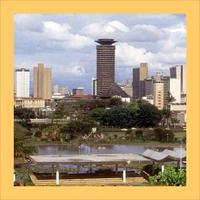KENYA: Investigate “torture” in Mt Elgon operation, government urged

A public inquiry should be set up into “torture and war crimes” committed by the Sabaot Land Defence Forces (SLDF) militia and the military in Mt Elgon District, human rights activists said.
"We need an independent civilian inspectorate of the police and military ... to restore trust in the security forces," Ben Rawlence of Human Rights Watch (HRW) Africa Division said in Nairobi at the launch of a report, All the Men Have Gone: War Crimes in Kenya's Mt Elgon District.
The report documents two years of “abuses” by both the SLDF and security forces. The SLDF, it alleges, were responsible for killing at least 600 people, terrorising thousands and torturing hundreds since 2006.
The police, paramilitary and military, on the other hand, are alleged to have tortured hundreds of men detained in mass round-ups since March in response to the militia activities.
Police spokesman Eric Kiraithe refuted the claims, saying the Kenyan police had followed international practice while performing their duties in the district.
"We have done our own investigations [on the allegations] and will be releasing a comprehensive report in due course," he told IRIN, describing the reports as "very inaccurate and far-fetched".
Blaming both the SLDF and government security forces for serious human rights abuses, the report said: "The Kenyan government has a responsibility to promptly and impartially investigate and prosecute the individuals responsible for these crimes."
"This is not an acceptable way of dealing with an insurgency ... It should be within the law," Rawlence said. The SLDF was formed in 2006 to seek redress for alleged injustices during land distribution in a settlement scheme known as Chebyuk, with the conflict pitting two main clans of the Sabaot against each other.
At least 37 people have “disappeared” after being taken into custody by security forces, according to the human rights group, and residents had remained wary of retributions from SLDF militias.
"The military and the police have a responsibility to protect the people from any regrouping by the SLDF," HRW said.
HRW's Africa director, Georgette Gagnon, said the “successful” operation to tackle the rebellion in Mt Elgon had come at a terrible cost.
The group called on foreign governments providing military aid and other assistance to Kenyan security forces to review that support in light of the mounting evidence of torture.
"Right now there is calm in Mt Elgon; people are pleased with what the military is doing but not the impact of the first three weeks of the [military] intervention," Job Bwonya, executive director of the Western Kenya Human Rights Watch, said.
"The government should also come up with a land policy to prevent further suffering of the people of Mt Elgon," Tiger Wanyanja, a human rights activist, said.
Hassan Omar Hassan, a commissioner with the Kenya National Commission on Human Rights called for a "stop to the strategy of intimidation of humanitarian groups" working in the district.
On 21 July, the charity Médecins Sans Frontières said its staff had been stopped at roadblocks and prevented by local authorities from providing medical assistance to civilians in the district.
 Back and Next - Back and Next
Back and Next - Back and Next See Also - See Also
See Also - See Also